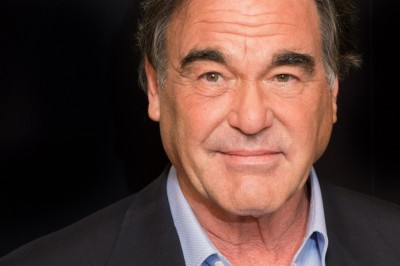Oliver Stone on Charlottesville: “Deep State” Is “Bigger Problem” Than Trump
The director spoke about the U.S. political system during a master class at the Sarajevo Film Festival.

Oliver Stone has said in response to the Charlottesville riots that the problem is not President Donald Trump, but “the system” in America.
The director, whose latest work is a four-hour series of televised interviews with Russian President Vladimir Putin that aired on Showtime in June, did not specifically criticize Trump when asked for his reaction to the weekend’s events in Charlottesville, Va., during which one woman died and several people were injured after a car plowed into non-violent demonstrators.
Speaking Tuesday during a master class at the Sarajevo Film Festival following a screening of his movie Snowden, Stone said he had not been in the U.S. for some time but was following events.
“You are all trying to get to Trump every day, but there is a bigger problem,” the filmmaker said when asked what he thought of President Trump’s initial failure to call out white supremacists in his response to the Charlottesville events.
“There is a system [in America], and that system existed before Trump,” Stone said. “Putin said this is the fourth [U.S.] president where nothing has changed. There is a deep state, a military industrial security state. … It is the system that has to be challenged. [Trump] is part of that system.”
He reiterated:
“It is the system that has to be challenged. That takes work and is never as exciting as talking about some lunatic president.”
Visibly more comfortable taking questions on Snowden, a dramatization of the story of NSA whistleblower Edward Snowden, than talking about current events, Stone added that the situation in the U.S. today was scarily close to the kind of world George Orwell wrote about in his futuristic novel 1984.
“1984 is here. We are there. The only thing they have not yet done is to erase history … there are still people who remember things,” he said. “One week it is terrorism [that dominates the headlines], the next week Putin and the next Korea.”
It was, Stone said,
“just like Hate Week in 1984, where the name of the country and the face of the leader changes halfway through a rally. They are doing it now and getting away with it.”
The director said he had been “offered a good amount of money to make a feature” about Putin shortly after his documentary came out, but declined because he is not Russian and does “not understand how they talk to each other; the way they are intimate with each other.”
But Stone added that he had learned a lot from the Russian leader about how the “geopolitical balance” works in the world.
Stone is currently working on a 10-part dramatized TV series about the U.S. military prison in Guantanamo Bay. He said he plans to direct two episodes and supervise a team of writers for the rest of the hour-long installments.

